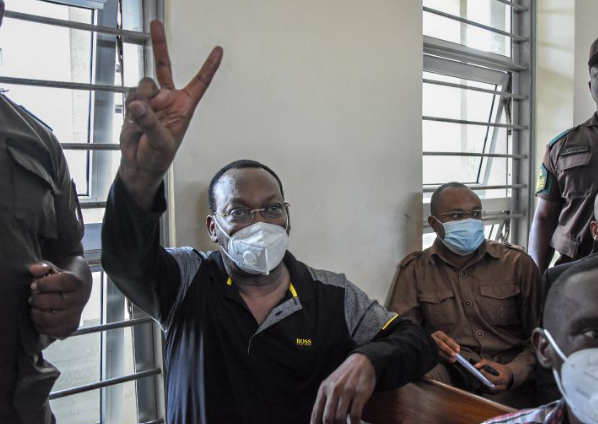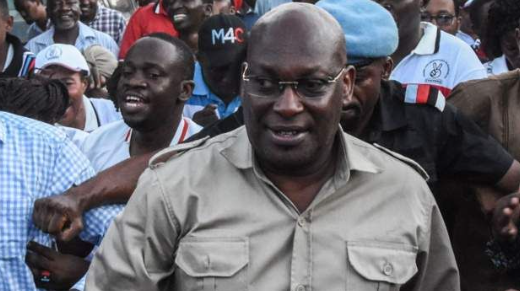
The High Court Division of Corruption and Economic Sabotage in Tanzania, on Wednesday-1 August, dismissed an objection that had been raised by lawyers representing the chair of the country’s main opposition party (CHADEMA), Freeman Mbowe, who had argued that the court had no jurisdiction to hear the case. Judge Elinaza Luvanda, in response argued that the court’s division indeed had the power to hear the case, making reference to the Terrorism Act, whose offenses under Chapter 200 of the year 2019, states that the Terrorist Offenses Act falls within Economic Sabotage Offenses.
The economic sabotage case Mr Mbowe and three others are facing, was officially moved to the High Court’s Corruption and Economic Crimes Division on Tuesday for preliminary hearing. This came a week after committal proceedings were read to the defendants at the Kisutu Resident’s Magistrate Court. Senior State Attorney, Robert Kidando, sought the court’s guidance after receiving the preliminary objections from Mbowe’s lawyers challenging the authority of the High Court Division to hear the case. Mbowe in a petition filed through his lawyers, argued that according to the Anti-Terrorism Act, their case should be heard by the Supreme Court and not the special Division. Mbowe’s lead defense counsel, Peter Kibatala, went ahead to inform the court that his clients were being charged under two different laws; the Prevention of Terrorism Act and The Economic and Organized Crimes Control Act.
Mr Kibatala argued that The Prevention of Terrorism Act designated the court for hearing and determining matters related to terrorism offences only, but lacked jurisdiction to hear corruption and economic sabotage charges.
“ It is our submission that terrorism-related offences can only be heard and determined by the ordinary High Court and not this special court. Terrorism is not related to economic sabotage offences. So, we ask this court to grant our objectionsand the accused be set free,” argued Mr Kibatala.
Mr Kidando, who was being assisted by senior state attorney Nassoro Katuga, separately opposed the objection saying Kibatala had fronted the argument on a wrong interpretation of the law.
“Mr Kibatala agrees that terrorism offences under The Prevention of Terrorism Act were put under the Economic and Organised Crimes Control Act. So, if there is a legislation that tells us the offence that these men are charged with is an economic sabotage offence, then there is no any other law we can rely on,” said Mr Kidando.
“If Parliament sits and enacts a law that made terrorism offences to be economic sabotage offences, what other interpretation are we looking for? Since the charge sheet is clear that the accused are charged with terrorism offences, then the offences also fall under economic sabotage offences and this court has jurisdiction to hear and determine them,” he argued.
In Wednesday’s court proceedings, the panel of lawyers defending Freeman Mbowe and his co-defendants, filed another objection to the charges levelled against them, citing a lack of legal basis. Following the objections, the State defense lawyers requested for time to review the arguments presented by the defense team; the court granted the request, and adjourned the case until September 3rd.
Mbowe, who is facing unbailable terrorism-related counts, including that of financing terrorism and conspiracy, has been in custody since July 21, when he was arrested along with other senior party officials in a night-time police raid just hours before they were to hold a public forum to demand constitutional reforms.

Mbowe is charged along three other men, Halfan Bwire Hassan, Adamu Hassan Kusekwa alias Adamoo and Mohamed Abdillahi Ling’wenya. The prosecution alleges that between May 1 and August 1, 2020 at Tanzania’s Aishi Hotel, Hai District in Kilimanjaro Region and in Dar es Salaam, Morogoro and Arusha, Mbowe conspired with other men to commit terrorism offences. In this regard, Mbowe is accused of plotting to blow up fuel stations, and other areas of public gathering in Dar es Salaam, Arusha and Mwanza regions. Additionally, he is also accused of planning to harm the former Hai District Commissioner, Lengai Ole Sabaya.





